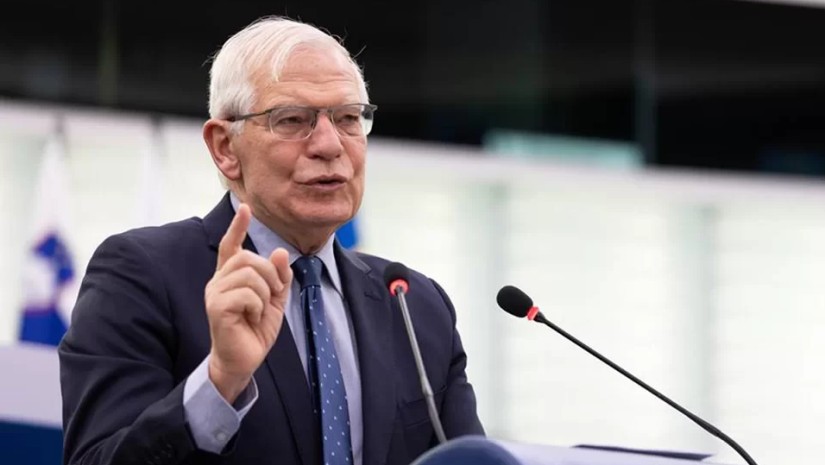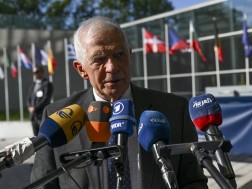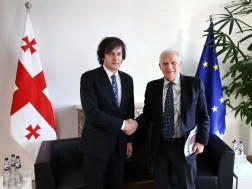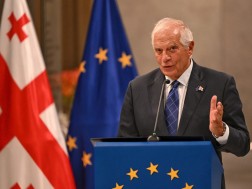One of the main challenges on the European path for Georgia is indeed the strong political polarisation. For the country to become an EU candidate, all political forces need to work together constructively, states Josep Borrell, High Representative of the European Union for Foreign Affairs and Security Policy. The EU External Action Service published Borrell’s statement.
Last week, I visited Georgia for the first time as HR/VP to tell the Georgian leaders and citizens that Georgia belongs to the European family. I wanted to share three main messages with the Georgian people and the Georgian authorities. First: there is no doubt for the EU that Georgia belongs to the European family. Visiting Georgia, you can feel the overwhelming European aspiration of the Georgian people. I have seen more European flags in the street of Tbilisi than in most European capitals. More than 80% of the Georgians want their country to become a part of the European Union. It is for sure an impressive figure and we value fully this commitment. During my stay, all my interlocutors made a plea for Georgia to receive candidate status to the EU shortly. It is a call that we have heard over the past months consistently from the authorities, from the opposition and from the civil society representatives,” Borrell stated.
In addition, High Representative states that there are clear requirements for Georgia on this path, which are reflected in the 12 priorities put forward by the European Commission, and the next steps for Georgia on the European path will depend on the results achieved.
“As of last June, Georgia has delivered on three of them. But on the other nine, quite a lot of work remains to be done. It concerns mainly depolarisation of the political life, de-oligarchisation of the economic, political and social life, justice reform, electoral reform, media pluralism and human rights. One of the main challenges on the European path for Georgia is indeed the strong political polarisation. For the country to become an EU candidate, all political forces need to work together constructively. As I discussed with the Georgian Parliamentarians, the majority has to be inclusive and the minority cooperative. The EU accession process is a national endeavour that needs to stand over party politics. The government and the party in power should work on creating an environment that makes this cooperation possible. Launching the impeachment procedure against President Zurabishvili, has further increased this counterproductive polarisation. To be able to go ahead swiftly with Georgia’s European path, all institutions of the country have to work together, i.e. cooperate. Georgian leaders should not miss this historic opportunity,” he noted.
The EU High Representative expressed unwavering support for Georgia’s security, sovereignty and territorial integrity.
“Since 2008, Georgia has been a victim of Putin’s neo-imperialist worldview. Our longstanding commitment to stand by Georgia is today as strong as ever in light of Russia’s aggression against Ukraine. These are not just words. We are backing this up by concrete actions: we have an active EU Special Representative for the South Caucasus, Toivo Klaar and our dedicated civilian mission, the EU Monitoring Mission (EUMM) that has been in the country for the last 15 years. To conclude, I think that my main message to leaders and citizens of Georgia has been clear: Georgia can count on the European Union and the EU door is open for Georgia. We want to see Georgia succeeding on its European path and hope that Georgian leaders will do their part not to miss this great opportunity,” Josep Borrell stated.
















